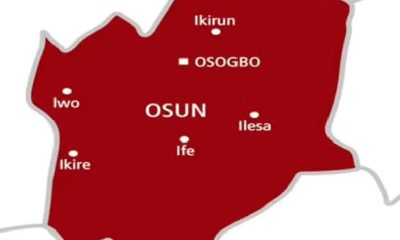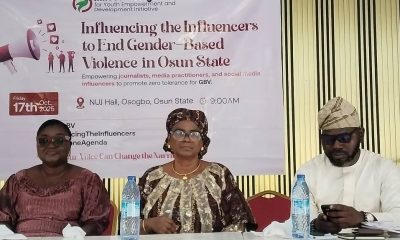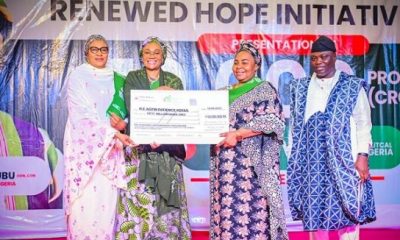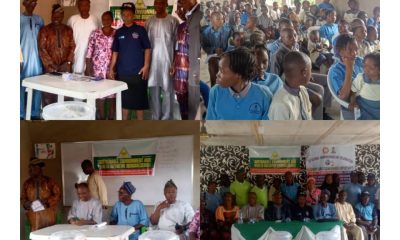News
NGO Raises Alarm Over Consequences Of Coronavirus In Nigeria

COMPLIMENTARIE, Ilorin
(NGO on Governance, Health and Development)
PRESS STATEMENT:
NGO RAISES ALARM ABOUT THE CONSEQUENCES OF THE COVID-19 IN NIGERIA
The Federal Government of Nigerian has taken some laudable steps so far in order to curb the spread of the COVID-19 pandemic through limitations on passenger transportation and mass gatherings; establishment of the Presidential Task Force on COVID-19 to lead and oversee the response at the strategic level; reinforcement of the public health measures at the points of entry; information and risk communication campaigns among other proactive interventions.
However, such measures do not cater to the specificity of the needs of the citizenry, which is having direct impact on their lives, businesses and work life. The macro-economic impact of the COVID-19 in Nigeria may also prove quite significant. The already imposed lockdown restrictions by the federal and different states government could lead to significant loss for businesses and their budgets, while additional financing are required to strengthen and ensure preparedness of the healthcare system.
We are releasing this statement, by thinking that people’s safety and dignity must be protected in line with international humanitarian and legal principles, or as UN High Commissioner for Human Rights Michelle Bachelet said on 6th March 2020, Human dignity and rights need to be front and centre as we respond to the virus.
URGENT STEPS TO BE TAKEN BY THE GOVERNMENT
Considering all of the listed above and in response to COVID-19 outbreak COMPLIMENTARIE has set out the most important and urgent steps that need to be implemented by the government, as soon as possible:
1) Bringing awareness to the people especially masses living in the grassroots regarding the COVID-19 virus and the barrier gestures to prevent it;
2) Strengthening the capacity of the public healthcare system, including healthcare personnel;
3) Strengthening community-based mental health and psychosocial support programming to counteract COVID-19 mental health issues;
4) Supporting the communities in practicing and maintaining recommended safety measures and hygiene practices;
5) Ensuring the allocation and distribution of essential supplies needed to prevent the spread of COVID-19 (PEP, masks, gloves etc.)
6) Supporting the people living along the contact line in sustaining their livelihoods, and in accessing their rights and social protection measures; and
7) Providing and ensuring palliative materials (foods and cash) to cushion the effects of the lockdown for the most vulnerable groups which include the aged, people living with disability, peasant farmers and menial workers, just to mention but a few.
While implementing all of the steps mentioned above, it is of utmost importance to ensure that any restrictions imposed on the rights and freedoms are in line with human rights law and standards. They should not last longer than strictly required by the circumstances and should not disproportionately affect the most vulnerable.
WE ARE CONVINCED THAT A POTENTIAL NEGATIVE IMPACT OF THE OUTBREAK OF COVID-19 IN NIGERIA CAN BE REDUCED BY EFFICIENT JOINT EFFORTS.
Signatory:
Olusola Olukemi Mrs (Executive Director
-

 Opinion5 days ago
Opinion5 days agoThe Clout-chasing Dipo Awojide By Comrade Da’Peace
-

 News4 days ago
News4 days agoRamadan, Lent: Shettima Calls For National Unity And Compassion
-

 Opinion4 days ago
Opinion4 days agoReinventing Osun’s Economy Through Dagbolu Intl. Trade Centre: From Quiet Market Lessons To Regional Trade Revolution By Adeboye Adebayo
-

 News4 days ago
News4 days ago‘Wike Factor’: Another PDP Chairmanship Candidate Steps Down For APC In FCT














